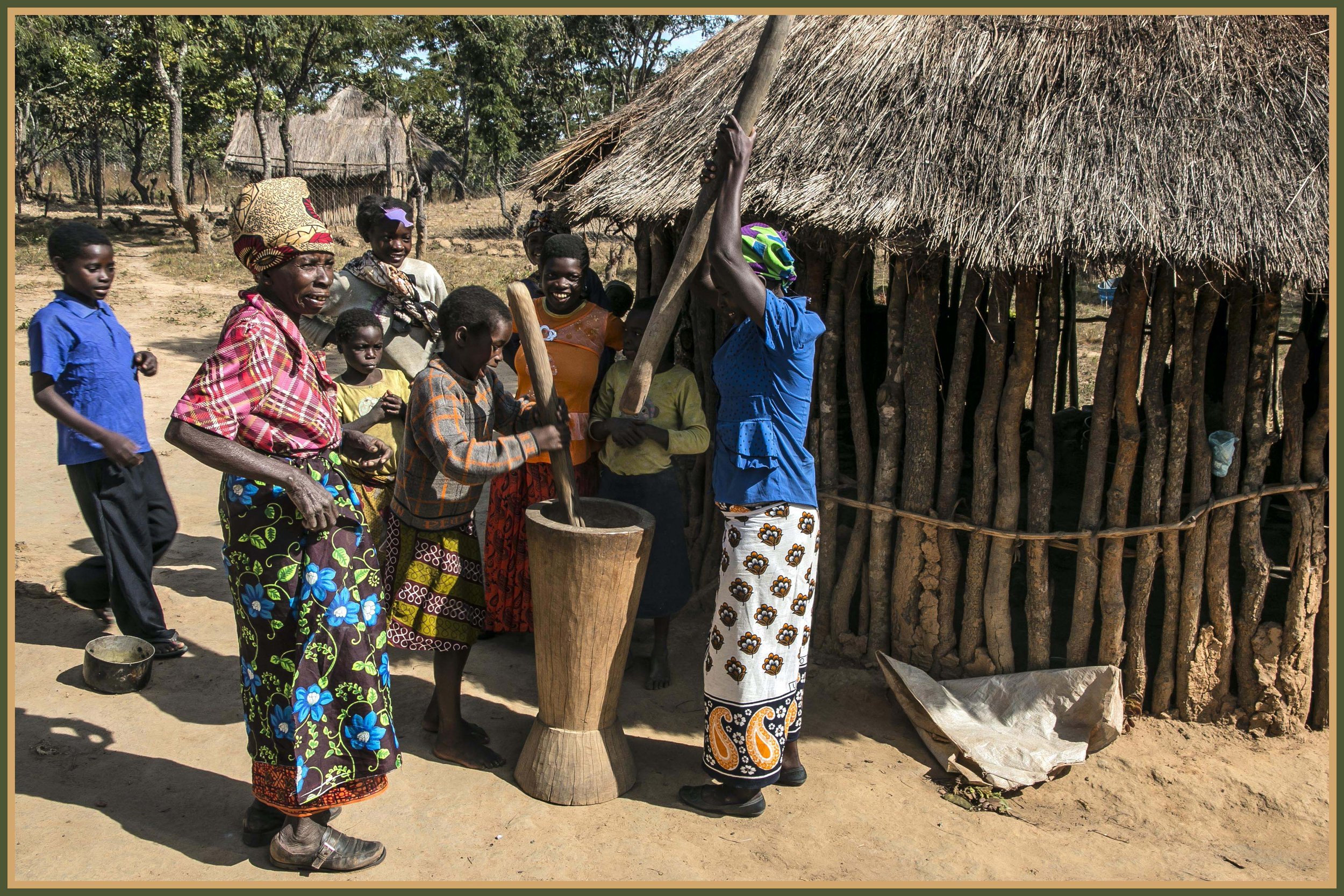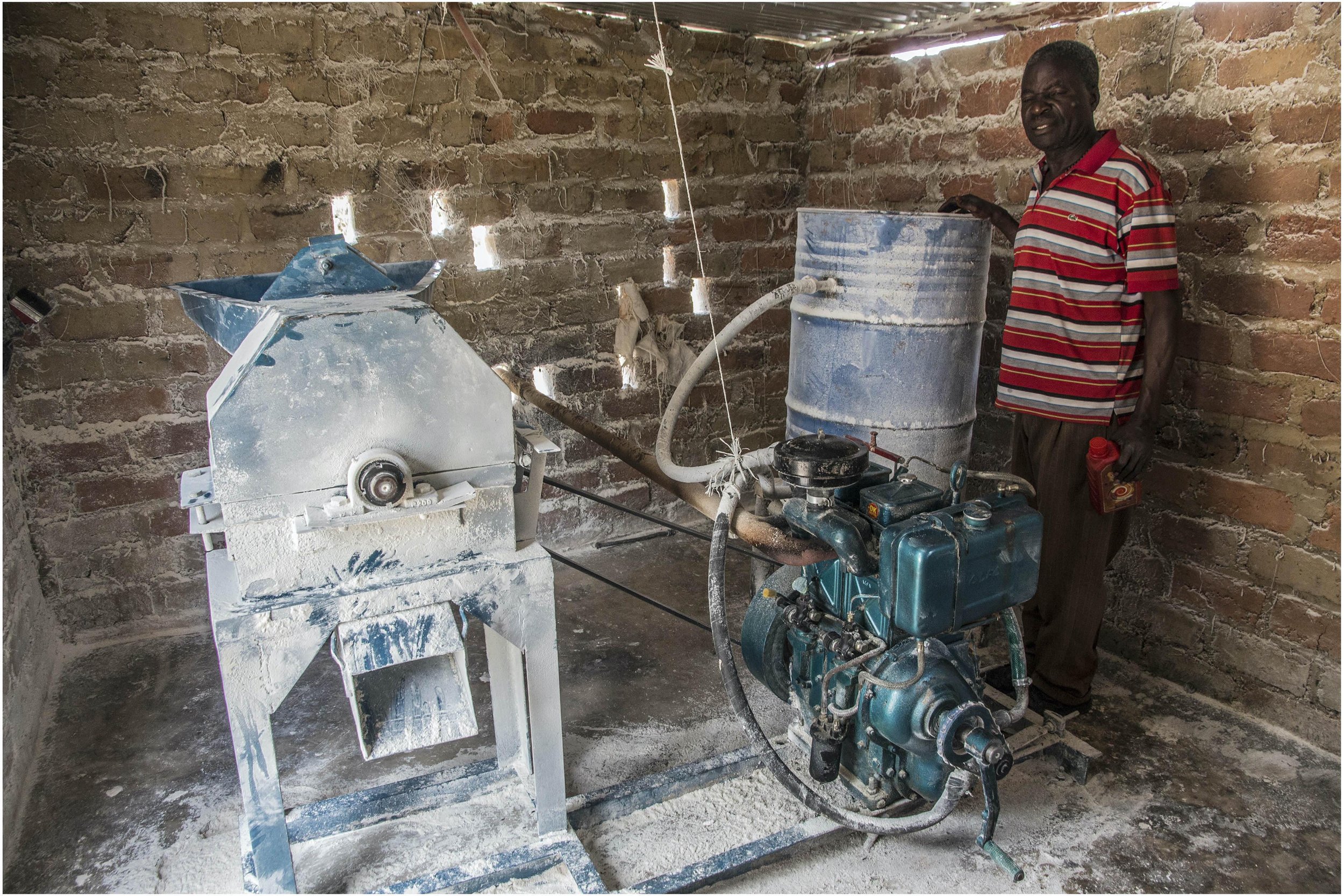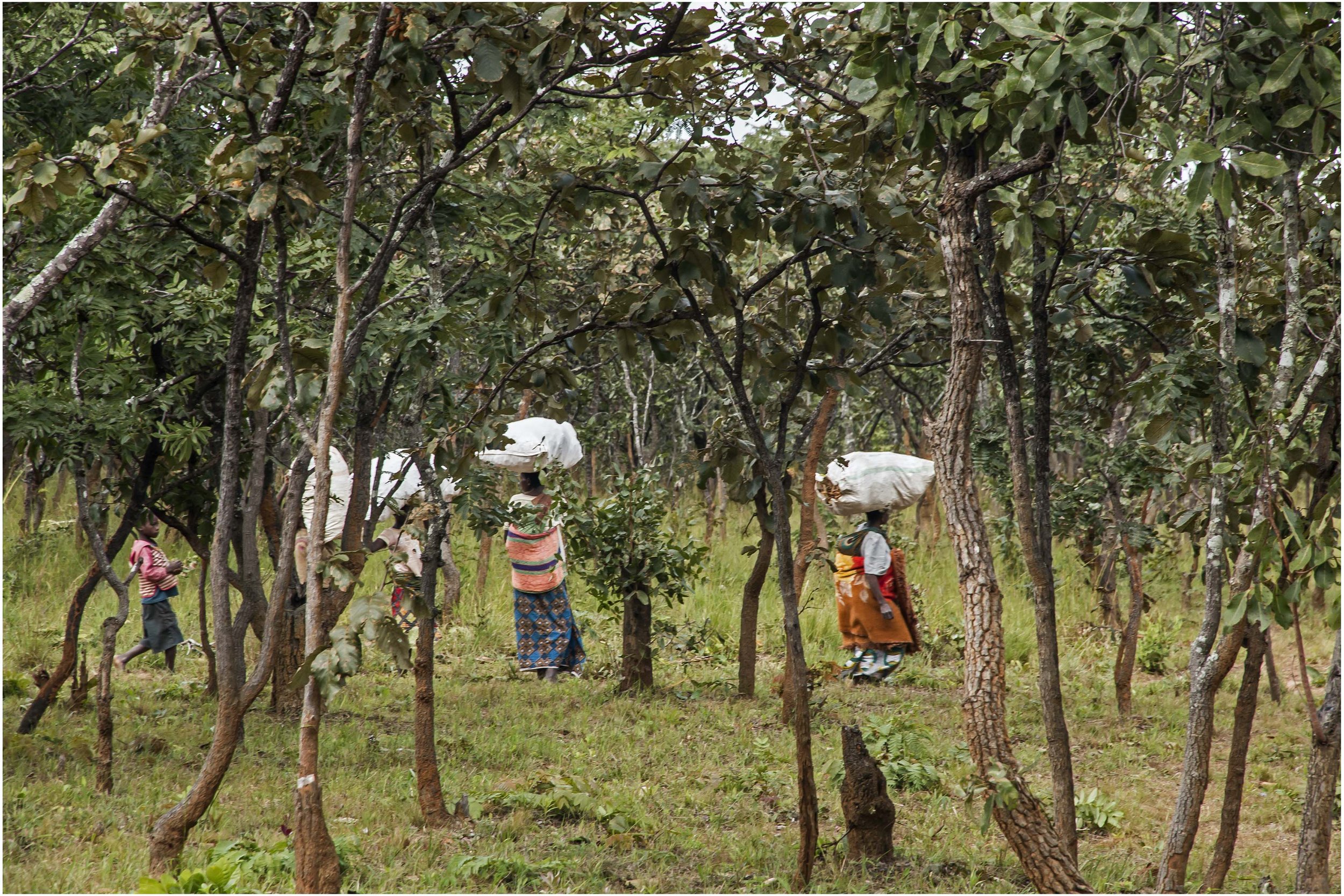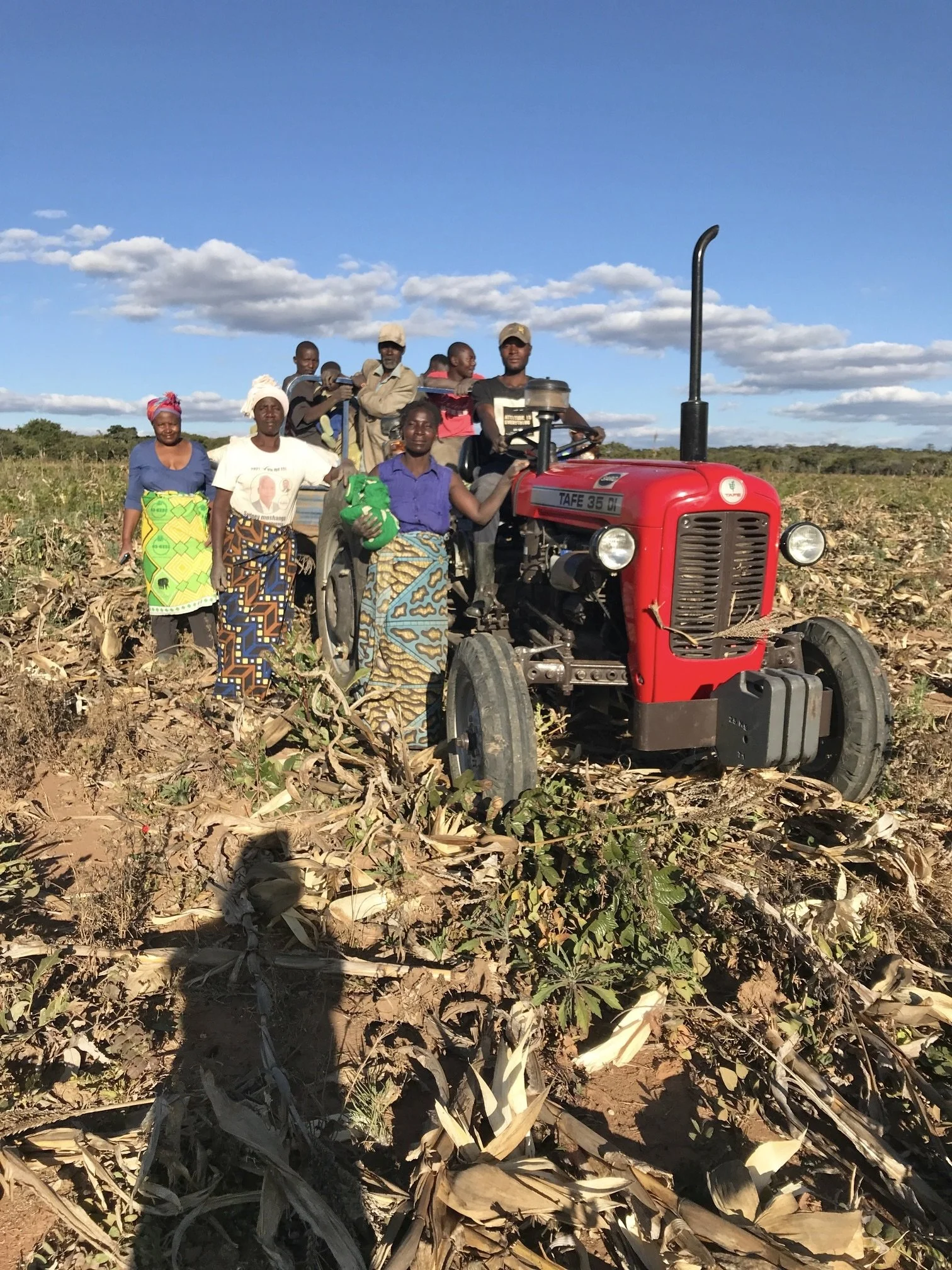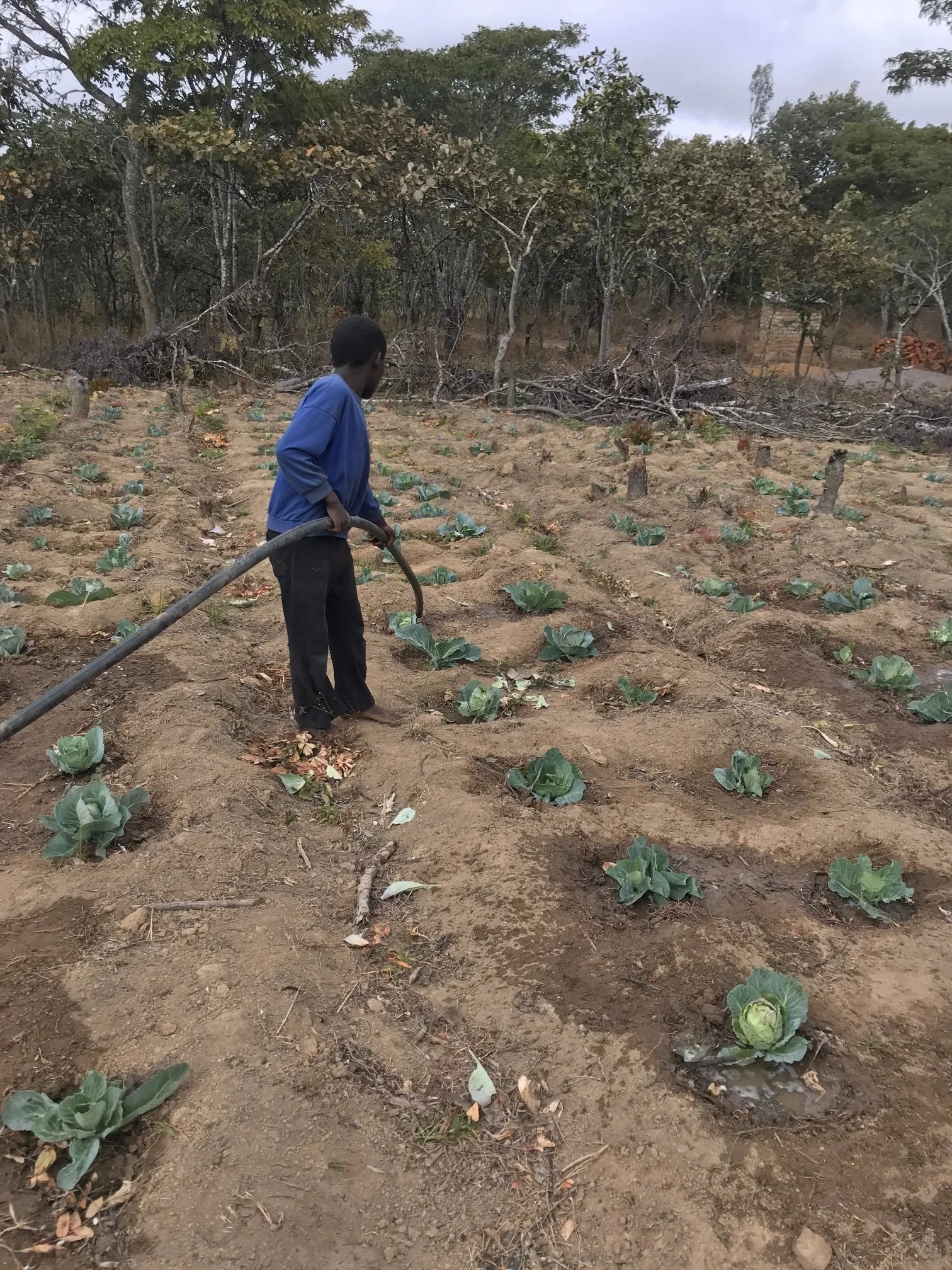FARMING AND HORTICULTURE
See the Blog for more up-to-date news
Traditionally, local people used slash and burn techniques to grow meagre crops - first cutting down a few trees, burning the area and planting seed (usually millet). The soil nutrients quickly became depleted and another area was cut down. The cut trees above, close to Kalilanama, will take a long time to recover and in time this leads to deforestation.
Dried millet plants were pounded to separate the grains from the chaff.
Millet seed was then ground rubbing a stone across a rock. A long and arduous process.
The first request from the community was for a hammer mill to grind maize grains into flour.
This is Nicholas, one of the project leaders, with the new hammer mill in April 2015
Growing crops is a vital part of the journey to food security and self reliance. In the past, the community relied exclusively on millet and sometimes maize. Jastin encourages villagers to work together to grow a wider range of field crops (e.g. cassava, beans), plus garden crops of vegetables and fruit (e.g. bananas, tomatoes, aubergines, onions, carrots, cabbage) as well as planting trees for timber and fruit.
Livestock include pigs, chickens and guinea fowl.
Early on in the project they acquired a very old and unreliable tractor. Thanks to generous donations they have recently been able to buy a decent second hand tractor which will enable them to greatly expand the farming activity.
The original tractor (left) was past its best.
October 2023 - the first large fish pond, one of four, has been built with the support of American Peace Corps. It will soon be stocked with fish providing much needed protein for the school children and community.
Unfortunately, there was a severe drought in 2024, and the two fish ponds that had been built completely dried up. Restocking will hopefully take place at the end of 2025.
There were much better rains at the beginning of 2025, with a good harvest in July/August.
These women have been picking soya beans in the project fields and are going home with sacks of beans, their wages for the day.
Bringing in the last of the maize harvest in August 2025
One of the pupils at the school waters cabbages in the school garden, July 2025.

